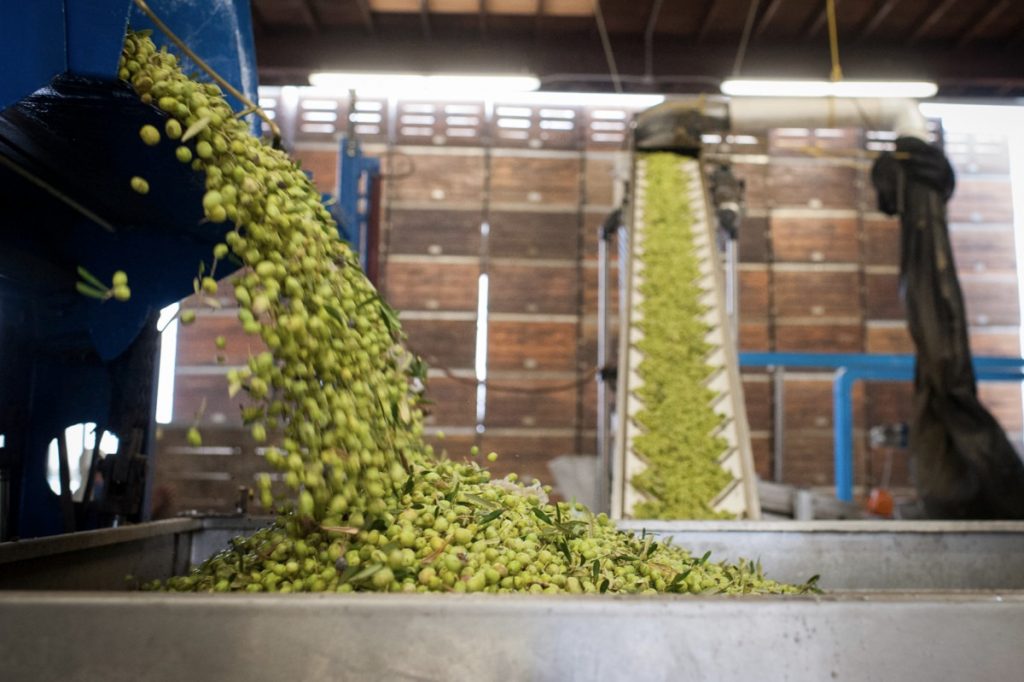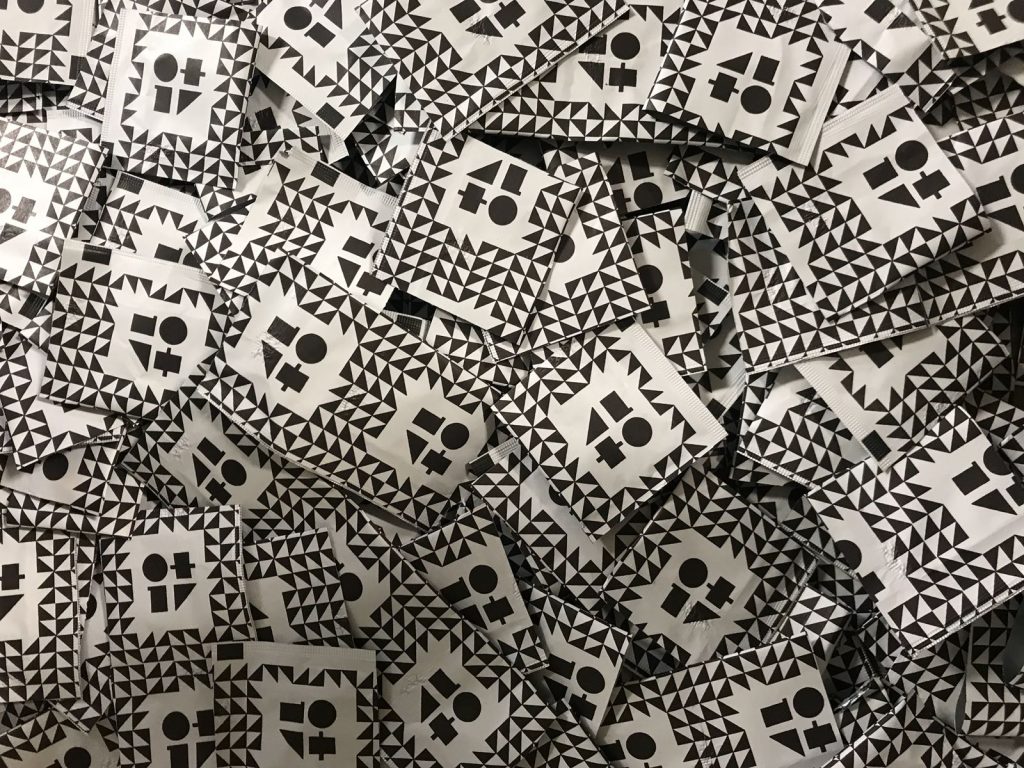Alto Essentials Makes Infused Products for Everyday Use
Chef and co-founder Jonah Reider hopes to bring micro-dosing, and quality ingredients, to the masses

Think of the garnishes used by an elegant chef—they’re concentrated accent marks: edible flowers, foraged greens and herbs, perfect-circle portions of mystifying morsels. More traditional chefs, novice or professional, give dishes a bit of a humbler finish: a couple dashes of EVOO, a few sprinkles of salt or, if it’s something sweet, a dab of honey.
The dishes, if they’re a familiar or familial recipe, provide a euphoric feeling—one that invokes a sense of place, happiness and simple pleasure. But, what if that feeling came from something else—something you can’t quite taste but you can certainly feel. Imagine if the aforementioned basics were infused with precise, micro-dosed amounts of THC distillate.
Jonah Reider, who wholeheartedly feels he’s just “somebody who loves food,” wants to make micro-dosing a habit that kitchens can harbor. His dinner series, Pith, is widely regarded. Now, the new cannabis-infused line of essentials he’s co-founded, Alto Essentials, is too. Currently, their line of products includes salt, honey, and olive oil—but it’s limited to Oregon consumers (for obvious, legal reasons).

“Our salt is sourced from Jacobsen Salt Company, where seawater from Oregon’s Netarts Bay is slowly evaporated in small batches until it forms large, crisp salt crystals with a delicate mineral flavor,” Reider explains. “Our honey is sourced from Bee Local, a specific variety in which bees pollinating wild buckwheat flowers produce a smoky and earthy honey with dark molasses overtones. Our olive oil comes from the small Ricchiuti Family Estate in California’s San Joaquin Valley—where piquant arbequina olives, sustainably grown on organically certified groves, are cold-pressed into a hazy and intense oil.”
Reider’s dinner series, which started in his Columbia dorm room a few years ago, has moved to a quaint and multi-faceted Brooklyn townhouse. Here, he hosts a weekly after-school culinary program for neighborhood middle-schoolers, free of charge. He hosts art exhibits, featuring ceramics and hand-drawn prints, in the front of the house. Every once in a while he’ll invite a few friends over for feasts more attune to his age.
“They all tend to be centered around creating really satiating dining experiences by prioritizing social interaction above everything else,” he says. “And the idea is that what makes a meal really great is not so much just how fancy the food you’re eating, but who you were with, how well curated the experience was and if you made meaningful memories.”

And his space is bustling. But, for Reider, with buzz came a bit of structure. At one point, he admitted, there were 4,000 people on a waitlist to eat dinner in his dorm room’s small kitchenette. When he releases tickets for the dinner series, they sell out in seconds. But, he’s always worried that his vision wouldn’t be taken seriously—that the title “dorm room chef” conveys ramen noodle ambitions and not Michelin-starred prestige; that being a chef that’s interested in cannabis will quantify him as a “weed chef.” Now, as Reider enters the space, it would be easy for skeptics or the unfamiliar to write off the efforts as a post-collegiate stoner’s pipe dream. But, the broader goal—and sheer quality—of Alto Essentials is respectable, glossy and intelligent (and in good spirit, if nothing else).
“I realized I love using cannabis. It’s really beneficial, and it can really elevate a dining experience,” Reider says. “But I don’t want to be a ‘weed chef.’ I don’t think there’s a really strong future for really potent cannabis-infused dinners. If you go to a cannabis dinner, they leave you feeling really overwhelmed and debilitatingly high, and it’s a very small subset of people who attend them: people who are really, really passionate about cannabis. But I wanted to do something with cannabis that would be more focused on empowering and inspiring people to use cannabis in their day-to-day in an acceptable, de-stigmatized and controllable way. And, in a way that is in line with my belief that having something really delicious is great and can elevate your day.”

Sourcing fresh and organic ingredients is a keystone of his style. When he’s having people over—whether it be for Pith or for his own pleasure (for which the lines are incredibly blurred)—he wants to show people that they can do this too. Incredible meals aren’t out of reach.
You can pick Reider out of the crowd at New York City’s Union Square Farmer’s Market on any given day—his tall frame bent over a spread of haricot verts or in-season tomatoes. He’ll pick out his ingredients for the night’s meal—or his own snack in-between—based on a keen sense of finding unlikely matrimony. Just as many might wonder why Reider felt the need to infuse olive oil or salt or honey, Reider deemed it obvious. These incredibles meals he’s making, he feels, are even better with these products—because of the quality of ingredient and the incremental dose of cannabis.
“There are plenty of people who know more about cooking food than me,” Reider says. “I’m just someone who loves food—I love it more than almost anything, and I’m taking an interest in it in a new space.”
He insisted that his passion must be matched by the farm he’d source the cannabis products from. The farm he ultimately decided to work with, who he stumbled upon in their early days, grows their product in the heart of Oregon’s wine country—embracing the ideal that prideful produce purveyors swear by: nutrient-rich soil yields the best ingredients. And it’s worked for them—their cannabis took second place in the outdoor category at the Oregon Grower’s Cup.

“My partner for this project is Indigo Gardens. They’re a biodynamic cannabis farm doing a lot of invaluable research on soil health. We’ve sourced pure THC distillate which has no obvious flavor or aroma—so the intention is to let the base ingredient shine. In the near future, we’re launching a CBD line of our products which will be available for consumers anywhere, and we are certainly considering iterations that showcase full-spectrum extractions featuring certain terpenes and cannabinoids,” Reider says.
His goal for these products is to allow consumers to cozy up to cannabis on their own terms. Attending a “weed dinner” is an entirely different experience from sprinkling a micro-dosed amount of cannabis-infused salt onto your home-cooked meals. The experience is meant to be relaxing—not inebriating—and unique to the individual. No two people react to cannabis the same way, and not everyone is in it to “get as high as humanly possible,” as Reider puts it.

“If I give you a bottle of olive oil that has a lot of cannabis in it, you’ll probably keep it on your kitchen counter, and you’ll cook with it, but it’s a little difficult to measure exactly how much you’re using,” he says. “I hope that our product pushes the market where it needs to be. Absolutely, in a year the average cannabis consumer is going to look completely different than what they look like today, and I hope our product will be actively making that change.”
The trio of products will be sold at dispensaries and will retail for $20 a box. In the box comes ten single-serving doses of one single product. And for those skeptical, single packets will be sold for about $3 or $4. The reasoning for the packets, Reider explains, is to give the consumer even more control. “I want people to use eating cannabis as a conduit for really, naturally integrating it into your day-to-day.”
The complete range of Alto Essentials products will be available in select Oregon cannabis retailers on 30 September.
All images courtesy of Jonah Reider / Alto Essentials












